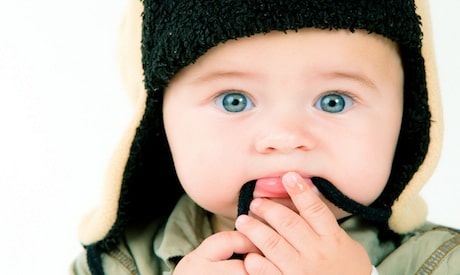
Trying to understand the complexity of human genetics is nothing short of nerve-wracking…but try to avoid any stress over it, especially if you're considering starting a family. New research shows a propensity for certain factors—including stress—to be passed down through genetics.
The research was published in the journal Science and led by researchers at the University of Cambridge. According to New Scientist, the data was obtained from detailed DNA scans of developing mice eggs and sperm, and the findings "backs up mounting indirect evidence from statistical studies that the genetic impacts of environmental factors such as smoking, diet, stressed childhoods, famine and psychiatric disease can be passed down to future generations through a process called epigenetic inheritance," a scenario than many geneticists had previously considered to be impossible.
While it's well established in the scientific community that genes can be switched off through a chemical process called methylation, where DNA is altered when enzymes "respond to environmental factors by marking genes with methyl groups that prevent them from working." But, says New Scientist, the "idea that genes carrying these epigenetic markings could be inherited" is still controversial. That's because previous studies have found markings added to genes during life, mainly from environmental factors, were believed to be erased in order to create a sort of clean slate for new genetic generations to form. And even the new research found only a very small percentage of the genes survived—fewer than 250 out of more than 25,000.
But what the new research finds is that some of the altered genes that survive through development hold the potential to pass on some of those risk factors that may seem unlikely to be inherited. One similar study found that stress in infancy of one mouse could be passed on to at least the next two generations, reports New Scientist.
This is a potentially huge consideration for parents-to-be who have suffered serious health crises or even emotional traumas at any point in their lives, not just shortly before or during pregnancy. It certainly gives more merit to adopting healthy lifestyle habits early on.
Keep in touch with Jill on Twitter @jillettinger
Photo Credit: Sergiu Bacioiu




